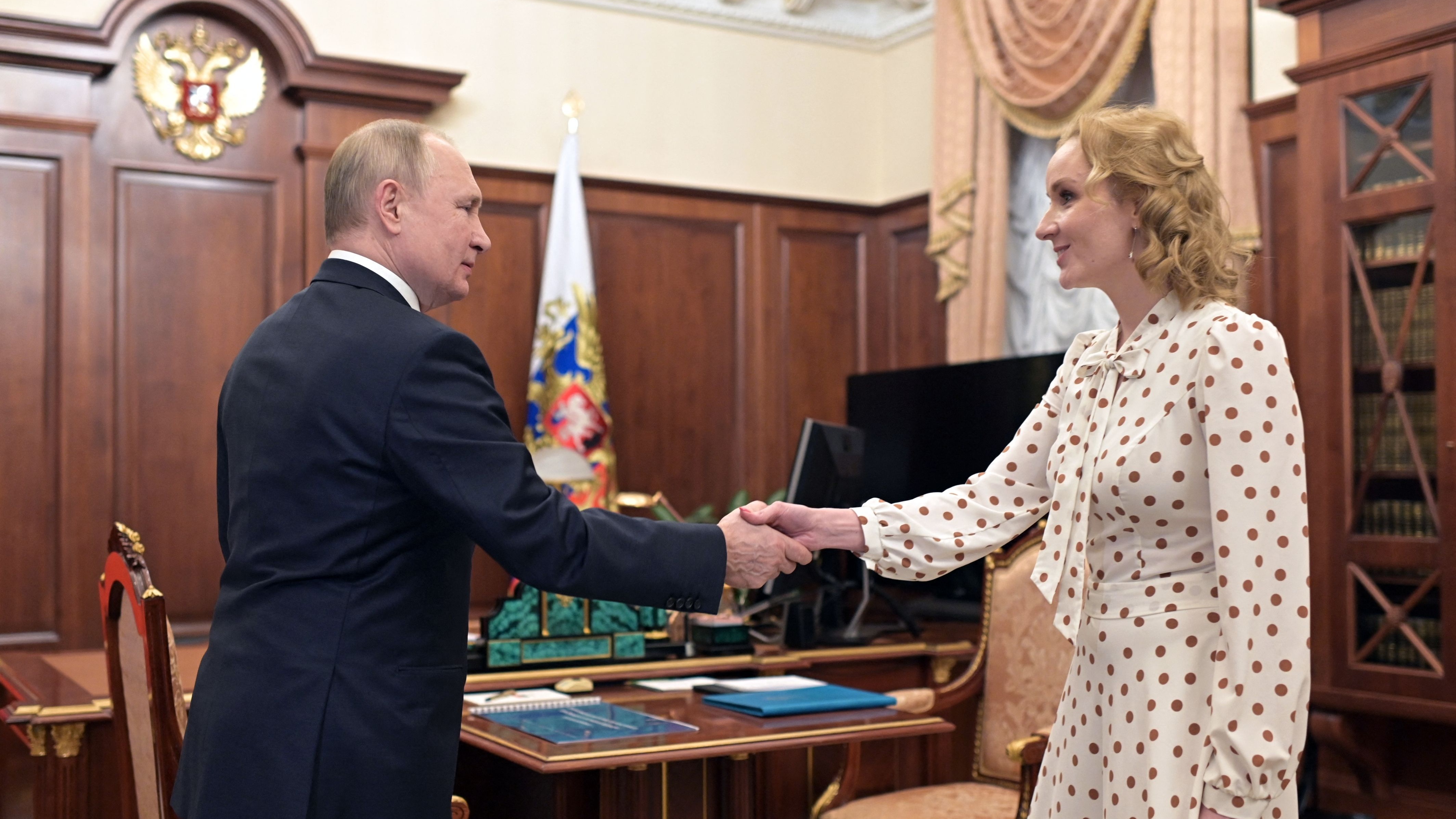Ukraine’s children abducted and ‘re-educated’ by Russia
Russian camps ‘brainwash’ thousands of Ukrainian children

A free daily email with the biggest news stories of the day – and the best features from TheWeek.com
You are now subscribed
Your newsletter sign-up was successful
Nastya is only 15, but she has already “lived a thousand lives”, said Camille Neveux in Le Journal du Dimanche (Paris).
Separated from her family after Russian troops occupied her home in southeastern Ukraine during last year’s invasion, she was deported to a so-called “filtration camp” in Crimea. She was then sent to another camp in Kherson, where she was forced to learn Russian and “violently beaten”.
For her, “the story ends well”: Nastya “miraculously” made it home last week, after finding her mother on social media. But thousands of others haven’t been so lucky, said the Kyiv Post.
The Week
Escape your echo chamber. Get the facts behind the news, plus analysis from multiple perspectives.

Sign up for The Week's Free Newsletters
From our morning news briefing to a weekly Good News Newsletter, get the best of The Week delivered directly to your inbox.
From our morning news briefing to a weekly Good News Newsletter, get the best of The Week delivered directly to your inbox.
In a new report, the US-based Yale Humanitarian Research Lab says at least 6,000 Ukrainian children, between the ages of 17 and four months old, have been taken from their families to Russian “re-education camps” and “adoption facilities” over the past year. Some of the 43 Russian camps identified are as far away as Siberia; all are designed to brainwash children with pro-Russian propaganda and military-style education.
Russian authorities present this as “a charitable effort” to save Ukrainian children from the “horrors of war”, said Belen Lopez Garrido in Eurovision News (Geneva). But we should be clear what it means: it is kidnapping, abduction.
Some of the kids go to vacation camps and find that their planned return is “suspended”; others are adopted and integrated into the “motherland”. Propaganda videos show these “bewildered children” being collected from trains and greeted with hugs from adults they’ve never even met. This is no act of kindness, said Galia Ackerman in Le Point (Paris): it’s a war crime aimed at erasing Ukrainian identity and restoring Russia’s declining population. It recalls the worst horrors of past conflicts, and must be stopped.
At the centre of this scheme is Maria Lvova-Belova, said Mick Krever on CNN (New York). Made Vladimir Putin’s “commissioner for children’s rights” in 2021, she posts photos showing the “wonderful life” being offered to Ukrainian children. She claims to have adopted a 15-year-old from Mariupol herself.
A free daily email with the biggest news stories of the day – and the best features from TheWeek.com
Ukraine’s government estimates that far more than 6,000 children have been taken, said Colin Freeman in The Daily Telegraph: it puts the figure at at least 14,000. Many, it seems, are orphans (Ukraine has numerous orphanages, “reminiscent of those in 1990s Romania”, a legacy of Soviet rule that Ukraine’s first lady, Olena Zelenska, has “vowed to end”). Kyiv hopes the Yale report will be a warning to the world; but it fears that many of the children taken to Russia will “never see Ukraine again”.
-
 Quiz of The Week: 14 – 20 February
Quiz of The Week: 14 – 20 FebruaryQuiz Have you been paying attention to The Week’s news?
-
 The Week Unwrapped: Do the Freemasons have too much sway in the police force?
The Week Unwrapped: Do the Freemasons have too much sway in the police force?Podcast Plus, what does the growing popularity of prediction markets mean for the future? And why are UK film and TV workers struggling?
-
 Properties of the week: pretty thatched cottages
Properties of the week: pretty thatched cottagesThe Week Recommends Featuring homes in West Sussex, Dorset and Suffolk
-
 Corruption: The spy sheikh and the president
Corruption: The spy sheikh and the presidentFeature Trump is at the center of another scandal
-
 Putin’s shadow war
Putin’s shadow warFeature The Kremlin is waging a campaign of sabotage and subversion against Ukraine’s allies in the West
-
 The fall of the generals: China’s military purge
The fall of the generals: China’s military purgeIn the Spotlight Xi Jinping’s extraordinary removal of senior general proves that no-one is safe from anti-corruption drive that has investigated millions
-
 Epstein files topple law CEO, roil UK government
Epstein files topple law CEO, roil UK governmentSpeed Read Peter Mandelson, Britain’s former ambassador to the US, is caught up in the scandal
-
 Iran and US prepare to meet after skirmishes
Iran and US prepare to meet after skirmishesSpeed Read The incident comes amid heightened tensions in the Middle East
-
 Syria’s Kurds: abandoned by their US ally
Syria’s Kurds: abandoned by their US allyTalking Point Ahmed al-Sharaa’s lightning offensive against Syrian Kurdistan belies his promise to respect the country’s ethnic minorities
-
 Israel retrieves final hostage’s body from Gaza
Israel retrieves final hostage’s body from GazaSpeed Read The 24-year-old police officer was killed during the initial Hamas attack
-
 China’s Xi targets top general in growing purge
China’s Xi targets top general in growing purgeSpeed Read Zhang Youxia is being investigated over ‘grave violations’ of the law